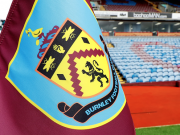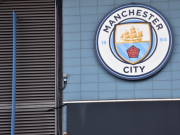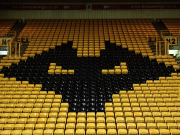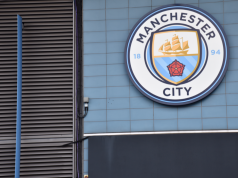Not everyone will agree on the way to fight racism in football, and that’s ok, but there’s been a rather strange tactic coming from some in Italy this week.
Getting really angry at someone being racially abused and spending days dragging their character down is certainly an unusual way of addressing the situation.
Last weekend, Mario Balotelli was playing for Brescia away at Verona. Towards the end of the match there were clear monkey chants coming from a section of the crowd.
The striker was visibly angered and kicked the ball out of play, to the cheers of the oh-so-pleased-with-themselves racists, and the situation caused the match to be temporarily stopped.
When it restarted, Balotelli scored a beauty from outside the box.
Since then, Italy has come together in unison to back the footballer. All fans have rallied behind him and the media as a whole has been using the incident as another clear sign something needs to be done to stop racism in the country’s football. Campaigns have been started, ultra groups have been targeted and it’s been a watershed moment.
Actually, none of that happened.
First of all, it’s worth noting that some in Italian football don’t actually think monkey chants are racist. Yes, you just read that.
Some. In. Italian. Football. Don’t. Actually. Think. Monkey. Chants. Are. Racist.
At the beginning of October, Italy’s FIGC approved guidelines to combat racism. When leaving the meeting, Lazio president Claudio Lotito was interviewed by the waiting media.
He denied that shooting ‘Buu’ (which doesn’t refer to booing, but is rather the word given in Italy to the sound of a monkey chant) is racist, explaining it’s even done to people with ‘normal white skin’.
“‘Buu’ doesn’t always mean a discriminatory or racist act,” explained Lotito. “When I was little, often people who were not of colour, who had normal, white skin, did ‘buu’ to discourage other players.”
Ok Claudio.
Of course, the reaction to the Balotelli incident did bring some criticism. There are people in Italian football, and who cover it, who are genuinely trying… yet it’s not the overriding response of the past week.
Verona’s public prosecutors office opened a file into the racism incident, and on the same day five municipal councillors from the city passed a motion to take action against the footballer for defaming the city.
The idea was that Balotelli having the temerity to complain about racism had given poor old Verona a bad name.
Lorenzo Contucci, a lawyer representing ultras in Italy, said: “The insult to Balotelli is not tied to the colour of the skin but to the unpleasant behaviour of the player.”
A day after the match, Luca Castellini, described as ‘head of Hellas Verona supporters’, said: “Balotelli is Italian because he has Italian citizenship, but he can never be completely Italian. We also have a negro in the team, who scored yesterday, and all of Verona clapped their hands.”
He added: “Balotelli, who is a finished player, has decided, in my opinion driven by someone and something, to be a clown and kick the ball into a curva.
“Next year Balotelli no longer plays football, he will go on television. As soon as he was under the curva of Verona he decided to kick the ball. In Verona he is annoyed because we sing “Mario Mario” and he prefers to be insulted, as everyone does. He defamed Verona.”
To be fair to Verona, they’ve since banned Castellini until 2030, but the official statement from their president regarding the racism wasn’t exactly helpful.
Maurizio Setti said: “When there are episodes of racism we are the first to condemn them, we have always done it, but it is wrong to generalise, speaking of racist choirs and fans, if out of 20,000 people a couple may, perhaps, have said something. Those two or three people, if there are, we are ready to take them and punish them because I strongly condemn any such incident.
“I met Balotelli and I apologised in the event that someone might have said something to him.”
The local mayor was at it too, with Federico Sboarina saying: “It appears that the sentence has already been written. What is happening to our city is objectively unacceptable.
“I reiterate, yesterday I was at the stadium and when Balotelli kicked the ball away, the feeling of everyone was astonishment. No one could explain why. Therefore it can only exist from an assumption that it does not exist, because at the stadium there were no racist choirs, a fan base and a city are put to shame.
“Not even the people I met with heard the choirs. The condemnation to all forms of racism and discrimination is clear, this is a fixed and inalienable point that is in the DNA of Verona and the Verona area. Even in the recordings I have not yet heard these choirs. One thing is the individual or the few who say some things, another is to say that there have been choirs, which no one has heard.”
For a recap, let’s listen to those two or three people who may or may not have existed. Impressively loud for a handful of people, perhaps it’s a special skill from Verona, to go along with being a little hard of hearing.
Mario Balotelli racially abused in Verona, walks off the pitch in protest. Referee temporarily suspends the game. After players from both teams asked for him to return, Balotelli comes back on in the 85th minute to silence the stadium. This has to stop, but what a goal pic.twitter.com/aoG2PSEczK
— koolaid (@aidanconlon_) November 3, 2019
Sboarina, seemingly enjoying the spotlight, continued to speak to the media, and revealed he’d sent a football, signed by himself, to Balotelli: “I was asked to donate something to him. There was a ball, dear to me, I signed it with a dedication to the player.
“Even if what happened on Sunday must be taken very seriously, because the theme of racism is objectively of absolute priority that must be faced and opposed. The question – is that on Sunday at the stadium no one heard those choirs, although certain articles were released. And I must say that no journalist from the national newspapers present at the stadium, with whom I spoke yesterday, none of them had heard anything.”
Why would he send him a football? Well, a statement from the ‘ultras of Verona’ may give a clue: “We want to apologise to the whole nation: today we have not been able to find the ball kicked into the curva on Sunday.”
The idea being that Balotelli wanted his ball back, they’re sooooo funny.
Brescia’s ultras group also got in on the act, but not to defend their man. Instead they released an official statement which first explained Balotelli has been a problem for much of his career, and then stated: “If he was not psychologically ready to face a support like that of Verona and – above all – a game as delicate as that of Sunday, in which a city (ours) played for salvation and a coach – among the most beloved of all – played his last chance, he had to say it and give way to someone less… nervous than he; no one would be pissed off, on the contrary.”
They then declared ‘having said all of this, we’re willing to start again from Saturday’ and give Balotelli another chance. How nice of them.
Very telling was the paragraph which ended their lengthy statement: “Those who are indignant – even rightly – for some apparently racist incidents that took place inside the stadiums, let us remember that the theme of racism today is often used to create a new alarmism among the public, useful – like a horse of Troy – to introduce new instruments of repressive and mass control, which otherwise would not be justifiable and acceptable.”
Grandiose behaviour from ultra groups is clearly still prevalent in Italian football, and although there are exceptions, they’re able to do this largely without much criticism from the media.
A fear, which is likely justified in some cases, exists when it comes to taking these groups on and calling them out for the bullshit they waffle and the way they act. That’s one of the reasons why dealing with racism in Italian football is all the more complex, but it doesn’t provide an excuse for the current situation.
Italy isn’t alone, and there remain serious problems in England which leads to a series of whataboutery when another country is questioned, as happened with the recent racism in Bulgaria.
Without getting into a game of racism Top Trumps, only ignorance or a desire to mislead would lead one to believe the situations in English and Italian football are the same.
At least here the media doesn’t seem quite so afraid.

























